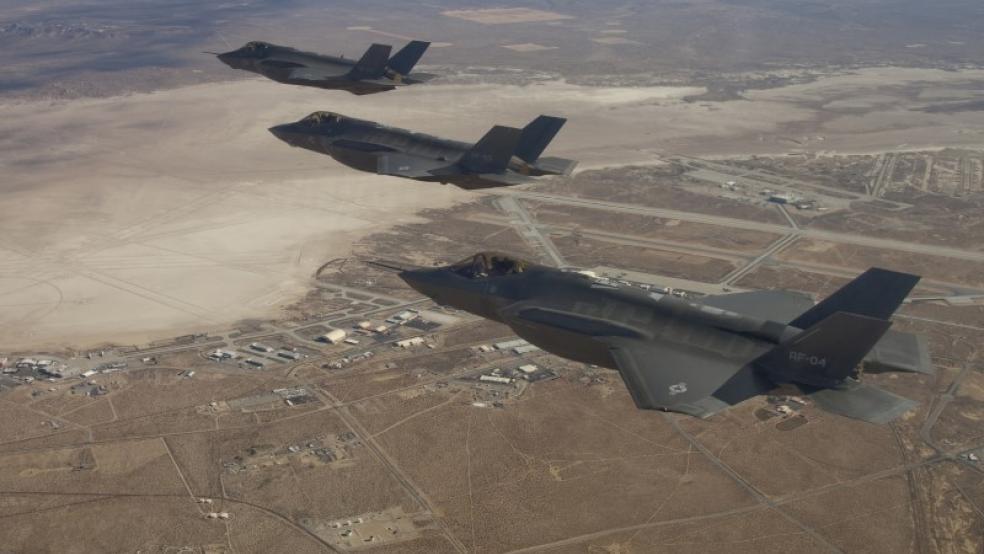In advance of his address to a joint session of Congress, Donald Trump sat down with the hosts of Fox & Friends to offer some of the details of the budget plan he was to unveil later that night.
But his assessment of how he expects to pay for a $54 billion increase in the Pentagon budget -- extraordinary economic growth -- doesn’t seem to jibe with that of his top budget expert, who is prepping the executive branch for massive reductions in non-defense spending.
Related: Trump's Military Buildup Makes Even His Generals Nervous
On Tuesday, Trump stuck to the White House claim that the funds will come, in part, from cuts to the State Department and the Environmental Protection Agency. But those cuts can’t cover the full amount, the Fox hosts pointed out. So where would the rest of the money come from?
“I think the money is going to come from a revved up economy,” Trump said. “I mean, you look at the kind of numbers we’re doing we were probably GDP of a little more than one percent and if I can get that up to three or maybe more we have a whole different ballgame. A whole different ballgame. And that’s what we’re looking to do.”
Respected economists have, clearly and at volume, called Trump’s growth projections excessively optimistic. But the friendly crew at Fox & Friends were apparently too polite to bring that up, as Trump moved on to outline other, vague sources of potential income.
“We’re going to be doing things having to do with other countries, because we’re treated very, very unfairly, when we help them, even militarily, we’re going to ask for a form of reimbursement,” he said.
Related: A Military Buildup and Big Tax Cuts: Is the Debt Set to Soar Under Trump?
“Right now we have countries where we’re taking care of their military, we’re not being reimbursed, and they’re wealthy countries. We have a lot of things happening, but we’re going to get the numbers way up and we’re going to get jobs back in our country.”
Trump also claimed that “thousands -- and millions, actually -- of jobs” would be created now that his nominee to run the EPA is in place, because he will drop barriers to the “hundreds and hundreds of massive deals that are tied up with Environmental Protection.”
The idea that the EPA is holding industry back from creating “millions” of jobs is preposterous. Look at it this way: if regulatory barriers were suddenly dropped and the total number of people employed in the oil and gas extraction industry and the mining industry were instantly doubled, it wouldn’t create even half a million jobs. In fact, the entire $18 trillion U.S. economy created only 2 million jobs in 2016, a year of solid increases.
But even if his boss is unwilling to confront reality, Office of Management and Budget Director Mick Mulvaney tacitly acknowledged it on Monday, when he told reporters that federal agencies were being directed to prepare for a $50 billion cut to domestic discretionary spending.
“It’s the president keeping his promises and doing exactly what he said he was going to do,” Mulvaney said. “We are taking his words and we turning them into policies and dollars.”





